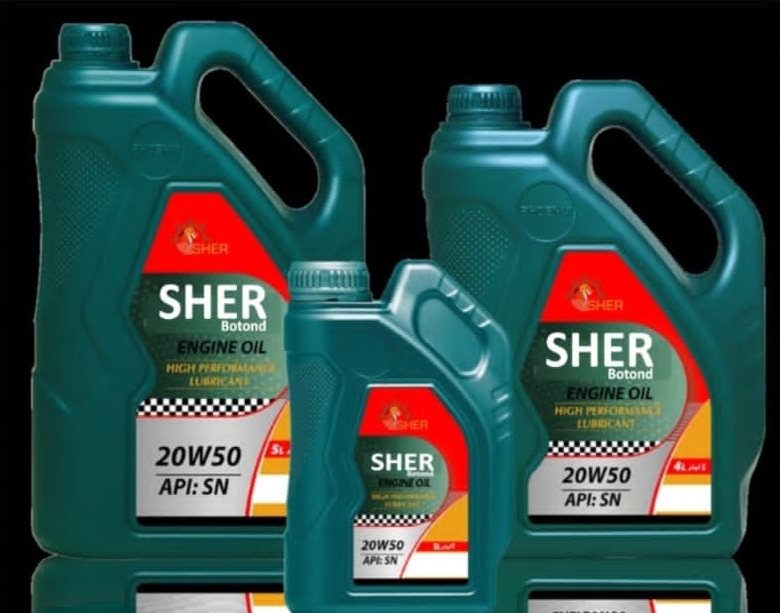The Best Engine Lubricant Oils in Nigeria: An In-Depth Look
The Best Engine Lubricant Oils in Nigeria: An In-Depth Look
Nigeria is home to a wide variety of engine lubricant oils that can be used to maintain and lubricate the engines of cars, boats, and other vehicles. With so many options available, it can be difficult to know which engine lubricant is the best for your needs. This in-depth look at the best engine lubricant oils in Nigeria will help you find the right option for your specific engine requirements. We will discuss the various types of engine lubricants available, their different qualities and features, and how to determine which one is the best for your vehicle. By the end of this article, you will have a better understanding of the different engine lubricant oils available in Nigeria and be able to choose the best option for your vehicle.
Types of engine lubricant oils
Before we discuss specific types of engine lubricants, it’s important to understand the difference between mineral and synthetic engine oils. Mineral engine oils are derived from crude oil and have been used since the invention of the automobile. In recent years, synthetic engine oils have become increasingly popular. These oils are made from a combination of synthetic hydrocarbons and highly refined crude oil. The hydrocarbons used in synthetic engine oils are polymers and other chemical compounds that do not naturally occur in crude oil. Because synthetic engine oils are chemically designed, they offer a number of benefits, including increased resistance to oxidation, heat retention, and better lubrication. Mineral oils also have their advantages and can be used in vehicles that are not compatible with synthetic oils. For the remainder of this article, we will focus on synthetic engine oils and the benefits they can offer.
Features and qualities of engine lubricant oils
The best engine lubricant oils will vary based on the engine’s needs. There are many qualities to look for when choosing the right engine lubricant oil, including viscosity, composition, and base stock. Viscosity – The viscosity of a lubricant oil is the measure of its thickness or how quickly it flows. Engine lubricant oils can be classified as either thin or thick. Most vehicles will require a specific viscosity oil, so be sure to refer to your vehicle’s owner’s manual. Most synthetic lubricant oils are thin and will flow more quickly than mineral oils. Composition – The composition of the engine lubricant oil will determine what types of contaminants and chemicals it can handle. Mineral oil – Mineral oil is a thicker oil that will last longer. However, it can cause internal corrosion and should not be used in engines with timing belts. Synthetic oil – Synthetic engine oils are generally lighter and thinner than mineral oils, making them easier to clean and flush out of the engine. They are also less likely to cause internal corrosion or damage the engine. Base stock – Different types of crude oil are used to create different types of engine lubricant oils. These oils are made from a specific type of crude oil known as a “base stock.” There are two types of base stocks: Polyalphaolefins (PAO) and naphthenic crude oil (NCO). Both types of oils are widely used and offer different benefits including resistance to viscosity breakdown, oxidation, shearing, and thermal breakdown.
Factors to consider when choosing an engine lubricant oil
There are a few factors to keep in mind when choosing an engine lubricant oil. While engine lubricant oil is one of the easiest engine parts to replace, it’s important to make sure you use the right type. You also want to make sure that you are using the right amount of oil in your engine to avoid damaging your vehicle. Tip: Always follow the manufacturer’s recommendations. If you have a car with a worn engine, you may want to consider using a thicker lubricant oil. If you have a newer car with a good engine, you may want to opt for a thinner lubricant oil. These are a few factors to keep in mind when choosing an engine lubricant oil: Manufacturer recommendation – The first thing you should do is consult your vehicle manual. All vehicle manufacturers will recommend a lubricant oil to use in your engine. If you are unsure which oil to use, check the manual. Driving conditions – Next, you should consider the driving conditions you are most frequently exposed to. Driving conditions will affect engine heat and will require different levels of engine oil depending on your vehicle. Engine type – If you have an engine with a worn-out part, you will want to opt for a thicker lubricant oil that will reduce engine noise. If you have a newer car with a good engine, you can opt for a thinner lubricant oil that will reduce engine wear and tear.
Popular brands of engine lubricant oils in Nigeria
There are many engine lubricant oils available in Nigeria. Some of the most popular brands include Castrol, Mobil, Pennzoil, and Shell. Castrol – Castrol has been around for over 100 years and is one of the most popular engine lubricant oils in Nigeria. It is available in both mineral and synthetic oils. Mobil – Mobil is another popular engine lubricant oil that is available in both synthetic and mineral varieties. Pennzoil – Pennzoil is another popular mineral lubricant oil. Shell – Shell is one of the most common synthetic engine lubricant oils available. Each of these brands is available in a number of different viscosities and engine protection levels that can be used for different types of engines. It’s important to choose the best engine lubricant oil for your specific engine type and needs.
Advantages and disadvantages of engine lubricant oils
Advantages Disadvantages Engine lubricants are essential for car engines. They prevent excessive wear and tear on moving parts, including the cylinder walls and the pistons. It is important to use the correct oil for your specific engine, otherwise you risk damaging it. There are two main types of engine oils: synthetic and mineral. Choosing the best engine oil can be challenging with so many options available. Mineral oils are made from crude oil, while synthetic oils are chemically engineered. These oils offer a number of advantages, including reduced wear and better lubrication. Mineral oils also have their advantages, including lower cost and being suitable for older cars. Before you choose the best engine oil for your vehicle, it is important to consider your driving conditions and engine type.








LEAVE A COMMENT
You must be logged in to post a comment.